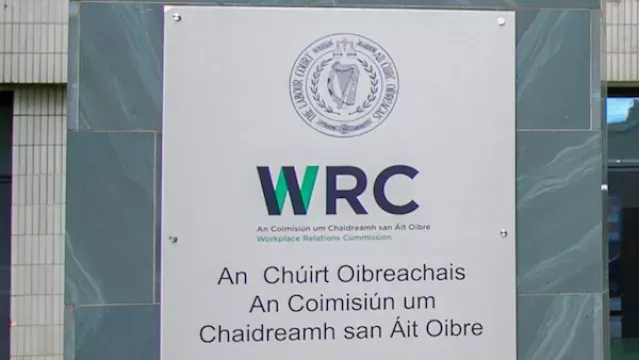Preparing for the EU Pay Transparency Directive - What Employers Need to Know
The landscape of pay and transparency in the workplace is about to undergo a significant shift. The EU Pay Transparency Directive, adopted in 2023, will have far-reaching implications for businesses across Ireland and the wider European Union. At MSS The HR People, we’re already working with clients to get ahead of these changes and to turn compliance into an opportunity for stronger engagement and trust.
Here’s what you need to know about how this directive will impact your organisation, and how we can help you prepare.
What Is the EU Pay Transparency Directive?
The Directive introduces new obligations for employers designed to strengthen the right to equal pay for equal work or work of equal value. The aim is to tackle the persistent gender pay gap by improving pay transparency and accountability.
Member States have until June 2026 to transpose the Directive into national law. However, employers shouldn’t wait to act, as many of the changes will require significant planning and system updates.
Key Requirements That Will Affect Your Business
While the final details in Ireland will depend on national legislation, the Directive and Ireland’s existing Gender Pay Gap Information Act together set out clear obligations that employers will need to follow, including:
1. Pay Transparency for Job Candidates
- You will need to disclose the initial pay level or pay range in job adverts or before interviews.
- Candidates will have the right to request information on pay and progression criteria before accepting an offer.
2. Clear Pay Structures and Criteria
- Pay-setting and career progression policies must be transparent, objective, and gender-neutral.
- Employees will have the right to know how their pay is determined.
3. Right to Information
- Employees will be entitled to request details of their individual pay level and average pay levels for categories of employees doing the same or equivalent work, broken down by gender.
4. Regular Pay Reporting
- In Ireland, under the Gender Pay Gap Information Act, employers must already publish annual gender pay gap reports. From 2025, organisations with 50+ employees are required to report.
- If unjustified pay gaps of 5% or more are identified, under the Directive, you may be obliged to carry out a pay assessment and take action.
5. Restrictions on Pay Secrecy
- Employers will no longer be able to impose contractual pay secrecy clauses preventing employees from discussing pay.
6. Enforcement and Penalties
- Employees who believe they are underpaid will have access to remedies, including compensation.
- The burden of proof may shift to the employer to demonstrate that no discrimination occurred.
What Impact Will This Have?
These changes are significant and will require careful planning, robust policies, and cultural change. Key areas of impact include:
- Recruitment Processes: Updating job descriptions, adverts, and offer procedures to include pay ranges.
- HR Policies and Contracts: Removing pay secrecy clauses and ensuring objective pay criteria.
- HR Systems: Ensuring you can generate accurate reporting data broken down by role and gender.
- Creating Clear, Gender-Neutral Pay Structures: Designing or updating your pay frameworks to define how pay is set, how roles are evaluated, and how progression happens, so that decisions are transparent, fair, and easy to communicate.
- Employee Relations: Preparing to respond to more frequent pay-related queries and potential grievances.
- Resourcing: Dedicating time and expertise to comply with reporting and assessment requirements.
How Can You Prepare Now?
Although the Irish legislation implementing parts of the Directive is still pending, proactive steps will reduce compliance risks and demonstrate your commitment to fairness:
- Conduct a Pay Audit
Review your pay structures and practices to identify any gaps or inconsistencies. - Update Job Descriptions and Recruitment Materials
Ensure that salary ranges are clear and transparent. - Review Contracts and Policies
Check for pay secrecy clauses. - Develop Clear, Gender-Neutral Pay Criteria
Document how pay decisions are made and ensure consistency across the organisation. - Prepare Communication Plans
Equip managers to handle questions and share information confidently and accurately.
How MSS The HR People Can Help
We know this can feel overwhelming, especially for organisations without dedicated in-house HR or reward teams. At MSS The HR People, we support clients across all sectors to navigate regulatory change practically and sensitively.
Our team can help you:
- Undertake a pay and policy review to identify areas of risk.
- Develop or update pay frameworks to ensure they are transparent and legally compliant.
- Train your HR team and managers on the new requirements.
- Prepare your pay reporting templates in line with the Directive and Irish regulations.
- Support employee communications to build trust and engagement.
- Advise on grievances or claims linked to pay transparency or equality.
The EU Pay Transparency Directive, combined with Ireland’s existing gender pay gap legislation, is a decisive step towards pay equity and it will bring new expectations for employers. Early action will not only ensure compliance but also strengthen your employer brand and employee trust.
If you’d like to discuss how these changes could affect your business and what you can do now, contact us today. Our HR consultants are ready to guide you through each step.
Get in touch with MSS The HR People: info@mssthehrpeople.ie PH: 018870690












